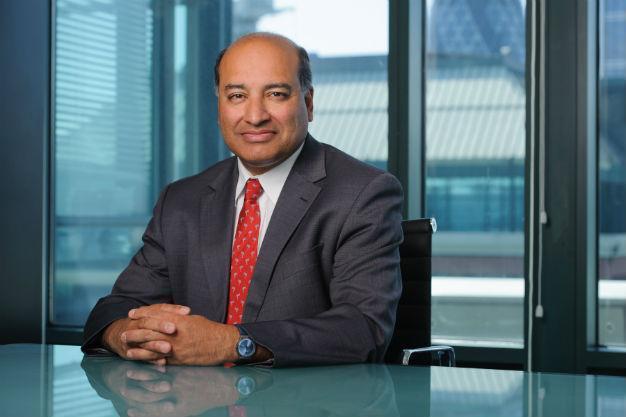EBRD plans 900-million-euro package for Turkey, Jordan
LONDON

European Bank for Reconstruction and Development (EBRD) President Sir Suma Chakrabarti has announced plans for a financing package worth 900 million euros for Turkey and Jordan, two of the EBRD countries which have been most seriously affected by the exodus of Syrians escaping from the violence in their home country.
Chakrabarti said at a conference on Feb. 3 that the EBRD would be able to finance up to 500 million euros in new transactions subject to mobilizing an additional 400 million euros in grants.
“In order to contribute to the mobilization of grant funding, management will propose to shareholders an allocation from the bank’s net income of around 100 million euros over a period of three years, from 2016 to 2018, subject to appropriate governance rules and to the bank’s continuing profitability. Management will propose to shareholders an initial allocation of 35 million euros in 2016,” he said.
Among the countries where the EBRD invests, Turkey currently houses more than 2 million refugees from Syria alone, while Jordan hosts an estimated 1.4 million people who have fled their homes.
The EBRD is already an important investor in these countries, with 1.9 billion euros in Turkey and plans to continue providing a high level of finance. Investments have grown strongly in the southern and eastern Mediterranean region, which includes Jordan, and exceeded 1.4 billion euros last year.
The bank is working toward becoming operational in Lebanon later this year, subject to a decision by shareholders.
The EBRD is owned by 65 countries, the EU and the European Investment Bank.
Chakrabarti was joined in an opening session of the London conference by Jordanian Planning and International Cooperation Minister Imad Fakhoury, Lebanese Education Minister Elias Bou-Saab and Muhammed Murtaza Yetiş, the Turkish prime minister’s chief advisor responsible for refugees and humanitarian aid.
Lebanon has applied to become a member of the EBRD with an eye to receiving finance.
Fakhoury said Jordan was working on an approach which aimed to turn the refugee crisis into a development opportunity. He spoke of a paradigm shift in dealing with refugees by supporting private sector solutions as well as public-private partnerships.
The approach would help Jordan “create more economic opportunities for Jordanians as well as for Syrian refugees until they can get back safely and rebuild their homes once a political solution is found,” he said.
The conference stressed the importance of engaging the private sector in helping to address the immediate infrastructure requirements caused by the influx of refugees and also helping to create jobs, particularly through the development of labor-intensive small- and medium-sized enterprise.
 European Bank for Reconstruction and Development (EBRD) President Sir Suma Chakrabarti has announced plans for a financing package worth 900 million euros for Turkey and Jordan, two of the EBRD countries which have been most seriously affected by the exodus of Syrians escaping from the violence in their home country.
European Bank for Reconstruction and Development (EBRD) President Sir Suma Chakrabarti has announced plans for a financing package worth 900 million euros for Turkey and Jordan, two of the EBRD countries which have been most seriously affected by the exodus of Syrians escaping from the violence in their home country.